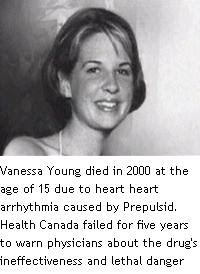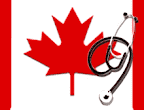Despite evidence indicating seniors are being prescribed potentially dangerous drugs, Health Canada says it can't do anything more to make its warnings about these medications more effective.
 The department is responding to an investigation in December revealing that doctors continue to prescribe anti-psychotic drugs to seniors, despite Health Canada warnings in 2005 that the drugs increased the risk of heart attack, stroke and death.
The department is responding to an investigation in December revealing that doctors continue to prescribe anti-psychotic drugs to seniors, despite Health Canada warnings in 2005 that the drugs increased the risk of heart attack, stroke and death.
The analyzed sales data for the drugs indicated that prescriptions increased from seven to 40 percent for a 24-month period after the warnings.
Dr. Marc Berthiaume, director of the Marketed Pharmaceuticals Division at Health Canada, said the department warns doctors and their patients about dangerous drugs through an increasing number of safety alerts such as letters, e-mails and its website.
"We have developed over the years different ways to increase our outreach of that safety information," he said.
But he acknowledges it is up to physicians to read the mailed material. "We cannot open the letter for them. We cannot make them read them."
He said that's because the department doesn't have the legal power to do anything more than publish warnings.
Terence Young, whose 15-year-old daughter Vanessa died seven years ago after taking the drug Prepulsid, said that is nonsense. "Health Canada claims their responsibility stops when the information gets into doctors' hands. I find that disingenuous on several levels.
"The safety warnings sent out to doctors simply don't work, and this was well established at the inquest into Vanessa's death."
Young said Health Canada is wrong to claim it has no legal authority to beef up health warnings, because the law makes it clear the minister's ultimate duty is to protect the safety of Canadians.
Michèle Brill-Edwards, a pediatrician and clinical pharmacologist and one of Health Canada's fiercest critics, agrees. "The minister has in the enabling legislation called the National Department of Health Act very broad powers for the protection of the public."
"I think Dr. Berthiaume is voicing the standard views of the department that seek to limit the department's responsibility for safety."
Although Health Canada refers to its drug alerts as risk communication, Brill-Edwards said that it's hard to call it communication when no one seems to be paying attention.
Source: CBC News
Related article:

No comments:
Post a Comment